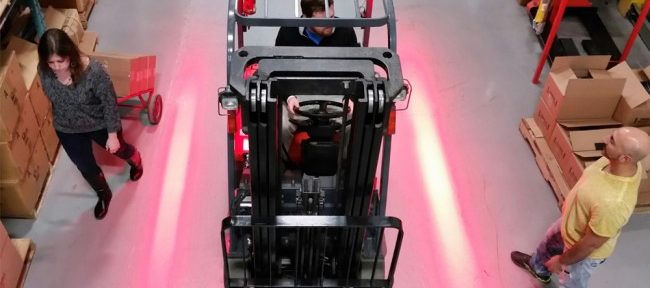To Improve Forklift Safety, Get Everybody Involved
 If you use forklifts in your workplace, everybody who works there has a stake in forklift safety.
If you use forklifts in your workplace, everybody who works there has a stake in forklift safety.
While forklifts are efficient, productive vehicles that can make loading, unloading, and moving jobs easier, they also are multi-ton industrial machines that can operate at high rates of speed — even in close proximity to pedestrians.
Consequently, anybody who steps foot on your workplace floor has the potential to be affected by unsafe forklift practices.
Raising Awareness of Forklift Dangers
Especially today, when so many people are engrossed in their smartphones and aren’t always looking where they are going, forklifts present a serious risk to life and limb in an industrial or manufacturing environment.
People who don’t work on or with forklifts everyday can sometimes take the potential destructive power of these vehicles for granted. They shouldn’t. A single collision with a forklift, even at slow speeds, is enough to break bones or even cause fatal injuries.
Organizations that use forklift need to make everybody who works there be aware of the potential danger they present. And one of the ways to do this is to require forklift training even for non-forklift operators.
Comprehensive Training for Everybody
Training your non-forklift workers alongside lift truck operators offers a great way to raise awareness of the real dangers associated with operating these vehicles — or working near them.
An in-house training program can address the lack of awareness about forklifts among workers who don’t drive them but may walk or work near them.
It’s up to the individual business whether or not they want to teach non-drivers how to operate forklifts. On the one hand, it’s a good idea because it creates a pool of potential replacement drivers in the event of a shortage. On the other hand, it could be costly and time-consuming. Plus, if workers aren’t driving forklifts every day, they may soon forget the skills they learn.
At the very least, forklift training for non-operators can include:
- The biggest risks associated with working near forklifts
- The biggest things you should avoid when working near forklifts (such as distracting drivers)
- Driver responsibilities
- Pedestrian responsibilities
- The basic workings of forklifts and why they are potentially dangerous
In an era when most people are more absorbed by their phones than the world around them, requiring training on the real-world dangers that forklifts and other industrial vehicles present in the workplace isn’t just a good idea … it’s a necessity.

